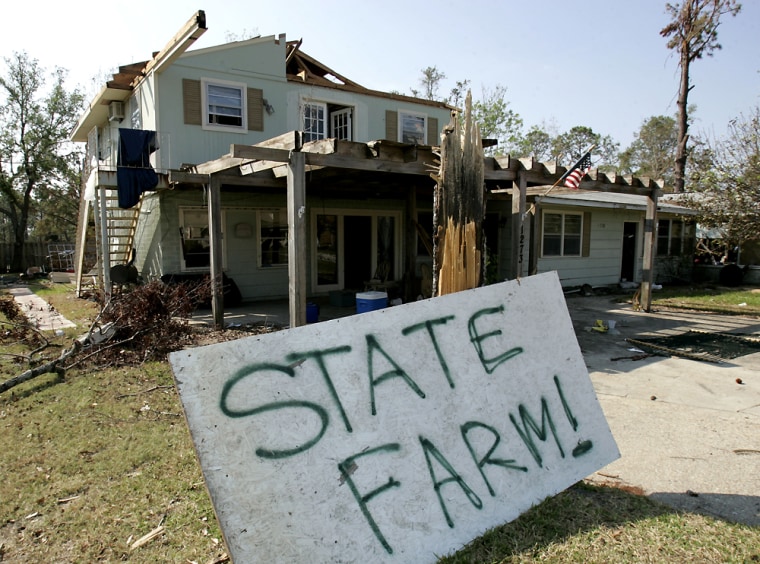People who lost homes to last year's hurricanes know how important it is to be properly insured. But millions of Americans in coastal areas still have inadequate homeowners and flood insurance policies.
And there are other types of insurance coverage you should consider to make sure your finances can weather any storm.
Nearly a year after hurricane Katrina, millions of residents in coastal areas still don't have enough insurance.
“Most people don't know what they have,” said Evans. “They know they have a homeowners policy. Do they have exclusions in the policy, deductible limits?”
Homeowners from Maine to Texas have seen their insurance rates rise since last year, and coastal residents often have higher deductibles and lower coverage amounts.
A hurricane deductible -- a percentage of the home's insured value of two to five percent or more -- is the norm in these areas instead of a set dollar amount.
Important protections require specific riders, like coverage for "additional living expenses" that include hotel costs if you're displaced.
But homeowner's insurance is less available in some coastal locations regardless of price. Allstate, for example, will no longer write new homeowner's policies in an eight-county area bordering Long Island sound and the Atlantic Ocean.
Where it's available, flood insurance is an important backstop against disaster, and not just along coasts and rivers.
“Everybody should consider purchasing flood insurance,” said Salvatore. “That 90 percent of natural disasters in this country have some form of flooding. So the risk is very high and it's very real.”
Renters need insurance too.
“It's relatively cheap,” said Salvatore. “It's generally about $200 to $300 per year. It's going to provide protection for all of your personal possessions. You're also going to have liability coverage.”
And a separate flood insurance policy will cost another $100 to $150 dollars -- on average -- depending on where you live.
If you don't think you can afford more insurance, don't just go without it. Try increasing your deductible; that will lower your premium.
